
Europe
13:53, 13-Feb-2019
12 Catalan leaders go on trial in Madrid
By Alan B. Goodman
02:38
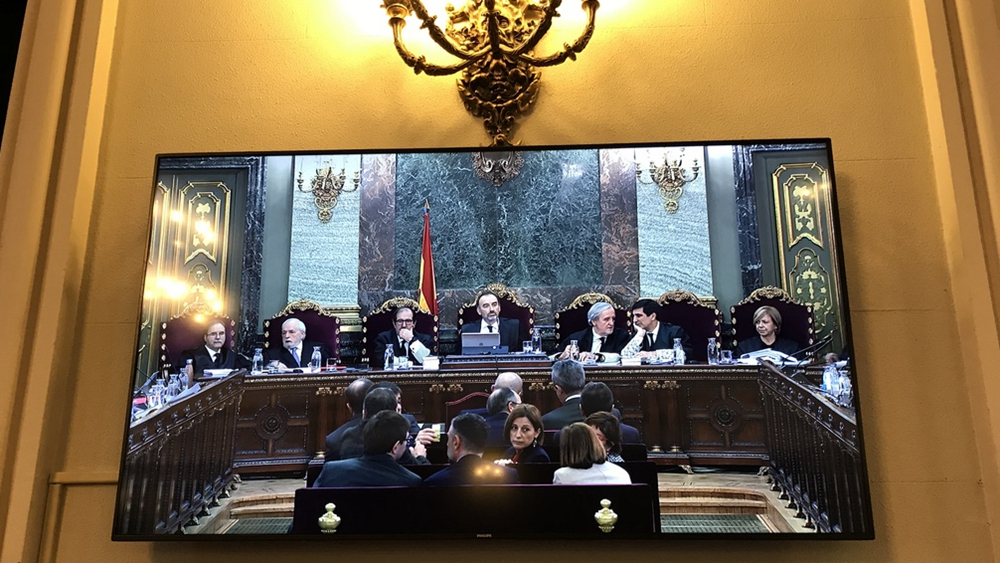
The highly-anticipated trial of 12 Catalan leaders, for their failed bid to break away the region of Catalonia, from Spain, was due to begin at 10 a.m. at Spain's Supreme Court in Madrid.
Four hours earlier, in a chilly pre-dawn scene, television camera operators and photographers started gathering, to get a good position, outside of the stately 18th-century courthouse.
Court officials said 600 journalists are accredited from 150 media outlets, including 50 from outside of Spain.
There was at least that much attention in Barcelona in the tumultuous autumn of 2017, when these same Catalan leaders, and others, organized a disputed referendum on independence and later unilaterally declared, in Catalonia's regional parliament, their independence from Spain.
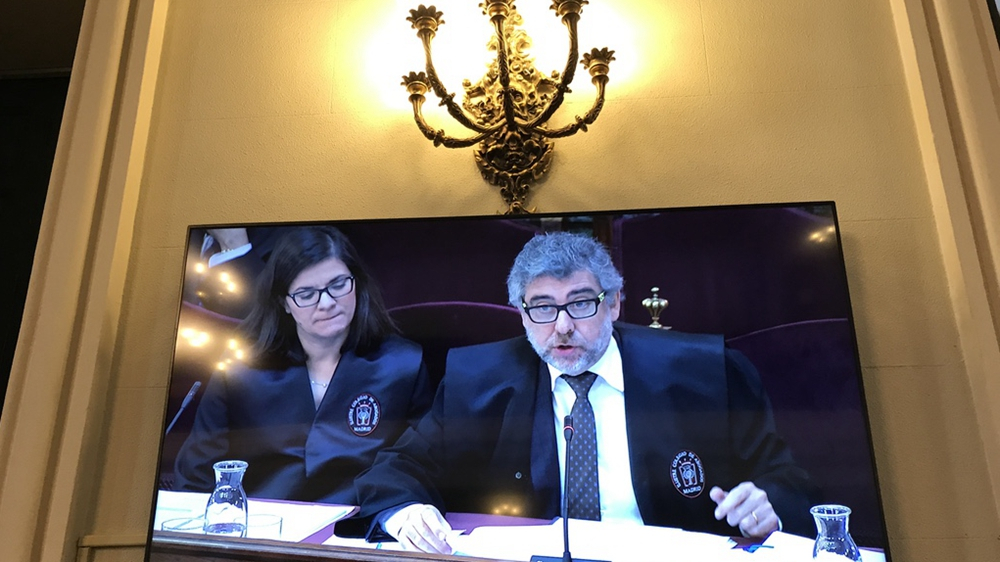
Defense lawyers address judges in trial, as seen on official live screening. /CGTN Photo
Defense lawyers address judges in trial, as seen on official live screening. /CGTN Photo
Spanish officials say that's prohibited under the Spanish Constitution and the government immediately stepped in and took direct, temporary control of Catalonia.
Arrests were made and the ousted Catalan President, Carles Puigdemont, fled to Brussels along with some aides. They are not on trial now, but officials say they face arrest if they return to Spain.
Former Catalan vice president, Oriol Junqueras, is the highest ranking of the 12 defendants. He faces up to 25 years in prison if convicted.
The charges for him and the others, mostly former Catalan government officials, range from rebellion and sedition to misappropriation of public funds, to finance the referendum in October 2017.
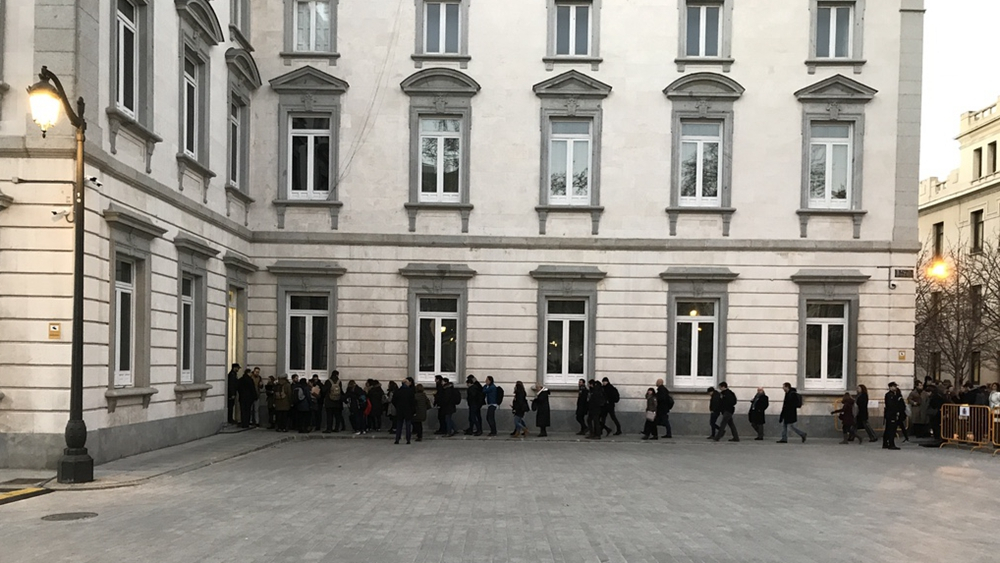
Journalists and the public line up for entry to the Supreme Court for the trial. /VCG Photo
Journalists and the public line up for entry to the Supreme Court for the trial. /VCG Photo
Nine of the 12 defendants have been in pre-trial prison, some more than a year, and they and their supporters say they are political prisoners.
The Spanish government and other leaders sharply deny that, saying they have full legal guarantees. The Supreme Court is not permitting international observers inside the courtroom, as requested by some of the pro-independence Catalans, but its top officials insist the judiciary is independent and impartial, as does the Spanish government.
The Supreme Court is televising all of the proceedings live on its website and is calling the case "Causa Especial (special case) 20907/2017", for the year the investigation opened.
On the opening day, the proceedings could be seen at the website. The proceedings are expected to be mainly in Spanish, with possibly some of the defendants testifying in Catalan, the language of Catalonia.
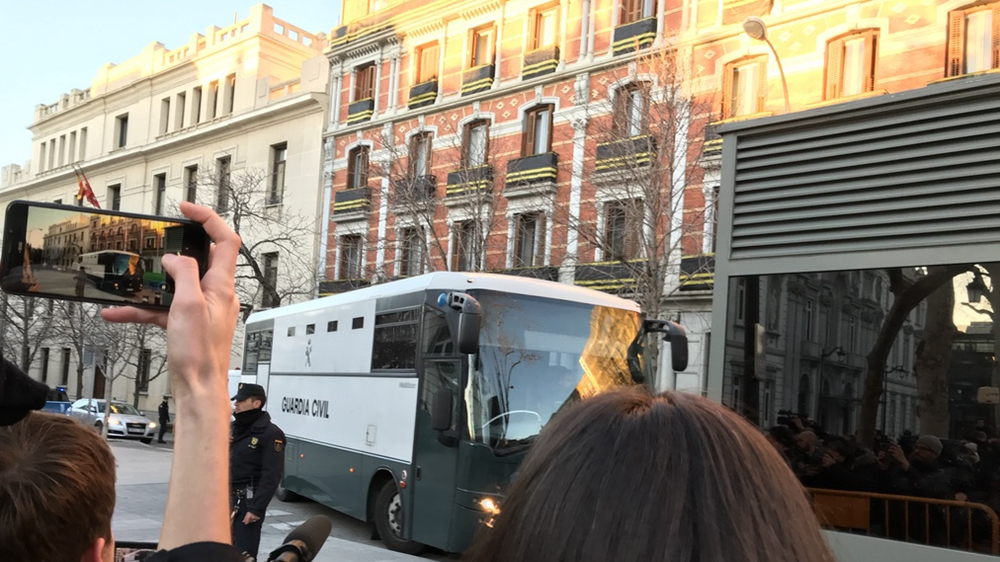
Male Catalan prisoners escorted in Civil Guard bus to courthouse. /CGTN Photo
Male Catalan prisoners escorted in Civil Guard bus to courthouse. /CGTN Photo
The trial is expected to last three months and feature 500 witnesses, including former conservative Prime Minister Mariano Rajoy, who was in charge when the central government took emergency, temporary control of the Catalan regional government, that has since been restored after elections there.
The trial is under such scrutiny because the issue of Catalan separatism has become a key factor in Spain's national politics.
Catalans themselves are split almost evenly for and against independence, according to polls, and according to election results for Catalan parliament.
But in the rest of Spain, the notion of a potentially independent Catalonia has led to a flourish of Spanish flags being shown proudly from balconies across the nation.
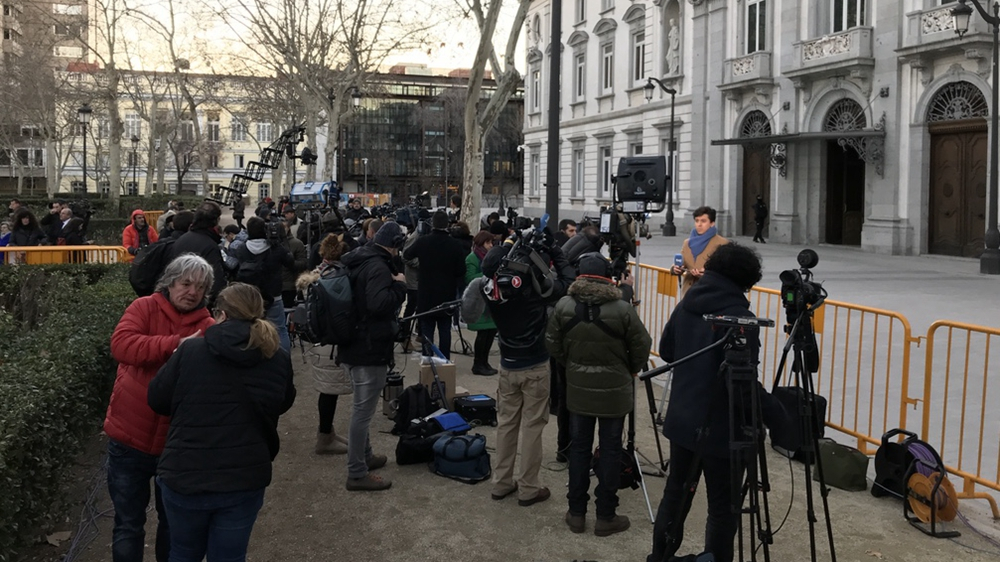
The media wait outside the Supreme Court. /CGTN Photo
The media wait outside the Supreme Court. /CGTN Photo
The Socialist Prime Minister, Pedro Sanchez, who's been in power since last June, has argued for dialogue to ease the political crisis. But the conservative opposition has blamed him for giving away too much already to the separatists in those talks.
Many analysts say the recent electoral rise of the far-right Vox party is a consequence of the Catalan separatist tension. The party staunchly defends a unified Spain and is a plaintiff in the trial, alongside the state prosecutor.
Prime Minister Sanchez this week is trying to pass the state budget in Parliament but his minority government needs the votes of some Catalan pro-independence parties in Spanish Parliament, and that's not at all assured. Snap elections could follow if the budget doesn't pass.
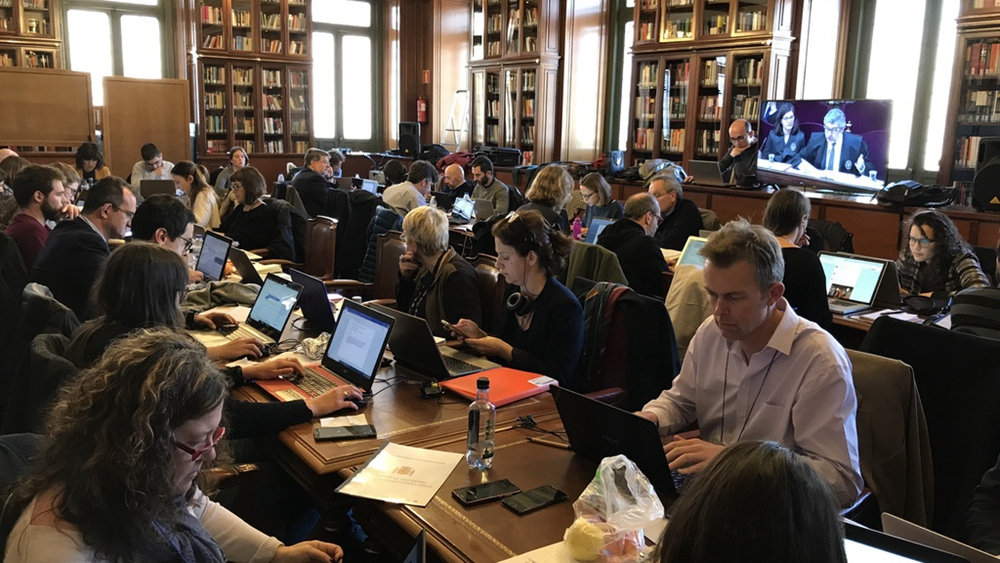
Reporters in one of three press rooms at Supreme Court to follow trial. /CGTN Photo
Reporters in one of three press rooms at Supreme Court to follow trial. /CGTN Photo
And nations across Europe with their own separatist tensions, including Belgium, where Puigdemont has taken refuge, are watching closely.
A sentence could be issued by late June or July, court officials say. And it could be appealed, first to the Spain's highest tribunal, the Constitutional Court, and possibly later to the European Court of Human Rights, in Strasbourg, France.
So there could be many more chilly mornings for the news photographers and camera operators, outside the courthouse.

SITEMAP
Copyright © 2018 CGTN. Beijing ICP prepared NO.16065310-3
Copyright © 2018 CGTN. Beijing ICP prepared NO.16065310-3